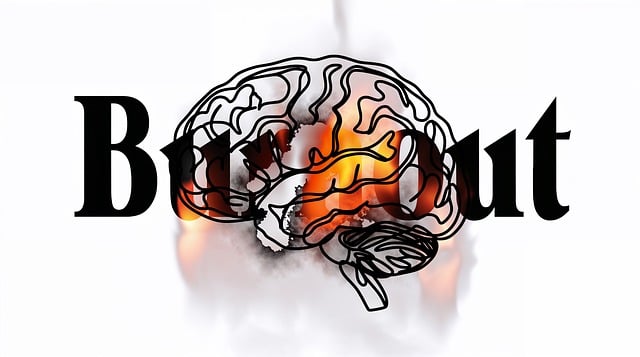Mental health education, modeled after successful programs like Littleton Alcohol Abuse Therapy, is vital for tackling growing mental health challenges. By integrating coaching, journaling exercises, and compassion cultivation, these programs empower individuals to manage their well-being, reduce stigma, and foster supportive communities. Utilizing diverse learning methods like workshops and role-playing, at-risk populations can develop coping skills, reframe negative thoughts, and prevent conditions like depression. Strategic planning, evaluation, and continuous improvement ensure these programs remain effective and aligned with best practices in mental wellness promotion.
In today’s digital era, addressing mental health issues head-on is more crucial than ever. This comprehensive guide explores the design of effective mental health education programs, focusing on strategies to empower individuals in navigating their well-being. From understanding common mental health challenges, such as Littleton Alcohol Abuse Therapy, to crafting engaging content and implementing successful evaluation methods, this article provides insights for creating impactful learning experiences. By embracing these key components, we can foster healthier communities.
- Understanding Mental Health Issues and Their Impact
- Key Components of an Effective Education Program
- Designing Engaging Content and Activities
- Implementation, Evaluation, and Continuous Improvement
Understanding Mental Health Issues and Their Impact

Understanding mental health issues is a fundamental step in designing an effective education program. It involves recognizing that mental wellness is a crucial aspect of overall health and well-being, just as physical health is. Mental health problems, such as depression, anxiety disorders, and substance use disorders, like Littleton Alcohol Abuse Therapy addresses, are common yet often stigmatized. Educating individuals about these issues can help reduce stigma, promote early intervention, and encourage people to seek support when needed.
The impact of mental health issues extends far beyond the individual, affecting families, communities, and even societal structures. Public Awareness Campaigns Development and Mental Wellness Coaching Programs can play a pivotal role in raising awareness, fostering empathy, and providing valuable skills for managing and preventing mental health challenges. By integrating education on trauma support services, we can ensure that individuals are equipped to navigate life’s stressors and build resilience, ultimately contributing to healthier, more supportive communities.
Key Components of an Effective Education Program

An effective mental health education program should be multifaceted and engaging, designed to empower individuals with knowledge and tools for fostering their own mental wellness. The Littleton Alcohol Abuse Therapy model suggests integrating several key components for optimal impact. Firstly, Mental Wellness Coaching Programs Development provides personalized guidance, helping participants set goals and navigate challenges in a supportive environment. Secondly, Mental Wellness Journaling Exercise Guidance encourages self-reflection and awareness by teaching techniques to document thoughts, emotions, and experiences effectively.
Additionally, incorporating Compassion Cultivation Practices is vital for enhancing emotional resilience and interpersonal connections. These practices promote empathy, kindness, and self-acceptance, fostering a positive mindset that can mitigate stress and improve overall mental health. By combining these components, education programs create an inclusive, structured, and transformative learning experience tailored to the unique needs of each individual.
Designing Engaging Content and Activities

Effective mental health education programs thrive on engaging content and dynamic activities that capture the attention and interest of participants. When designing such programs, especially for at-risk populations like those seeking Littleton Alcohol Abuse Therapy, it’s crucial to incorporate diverse learning methods to cater to different styles. Interactive workshops, group discussions, and role-playing scenarios can facilitate deeper understanding and encourage active participation.
The integration of Mind Over Matter principles, a powerful tool in Depression Prevention strategies, offers an insightful perspective. By teaching participants how to manage stress, cultivate resilience, and reframe negative thoughts, these programs empower individuals to take charge of their mental wellness. Engaging activities should aim to break down complex concepts into digestible chunks, ensuring every learner feels valued and supported throughout the process.
Implementation, Evaluation, and Continuous Improvement

The successful design of a mental health education program involves careful planning for implementation, robust evaluation strategies, and a commitment to continuous improvement. Upon rollout, programs like Littleton Alcohol Abuse Therapy should integrate interactive workshops, group discussions, and personalized resources tailored to diverse learner needs. Engaging activities such as role-playing scenarios or case studies can facilitate Coping Skills Development, making abstract concepts tangible and relatable for participants.
Evaluation is paramount to ensure the program’s effectiveness. Regular feedback from participants through surveys or focus groups provides insights into content relevance, delivery methods, and overall satisfaction. This data, alongside outcome measures tracking mental health indicators before and after the program, guides adjustments. For instance, if Burnout Prevention resources prove particularly popular, future iterations could expand on these topics. Continuous improvement ensures the program remains dynamic, relevant, and aligned with best practices in mental wellness promotion.
Mental health education programs play a pivotal role in fostering awareness and promoting well-being. By incorporating key components such as comprehensive content, engaging activities, and continuous evaluation, we can create impactful initiatives that resonate with diverse audiences. As highlighted by Littleton Alcohol Abuse Therapy, effective programming not only educates but also empowers individuals to navigate their mental health journeys with increased understanding and resilience. Through collaborative efforts and ongoing refinement, these programs have the potential to revolutionize mental health support in our communities.














